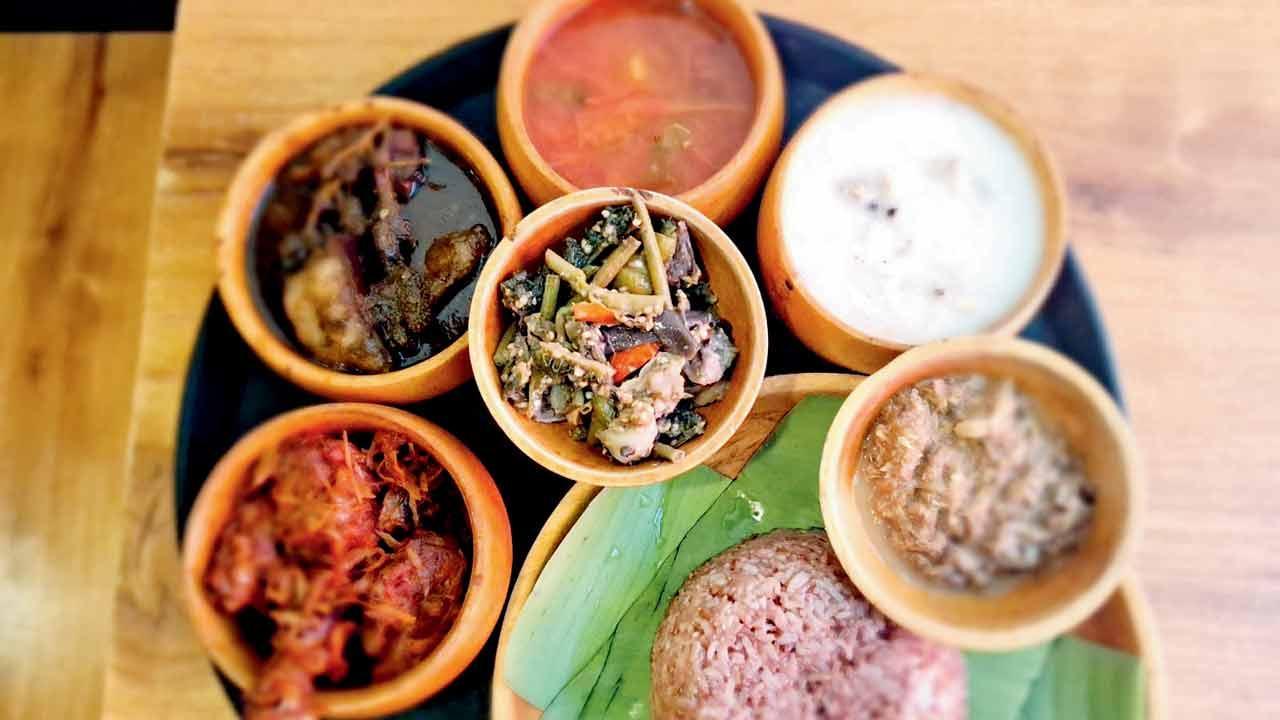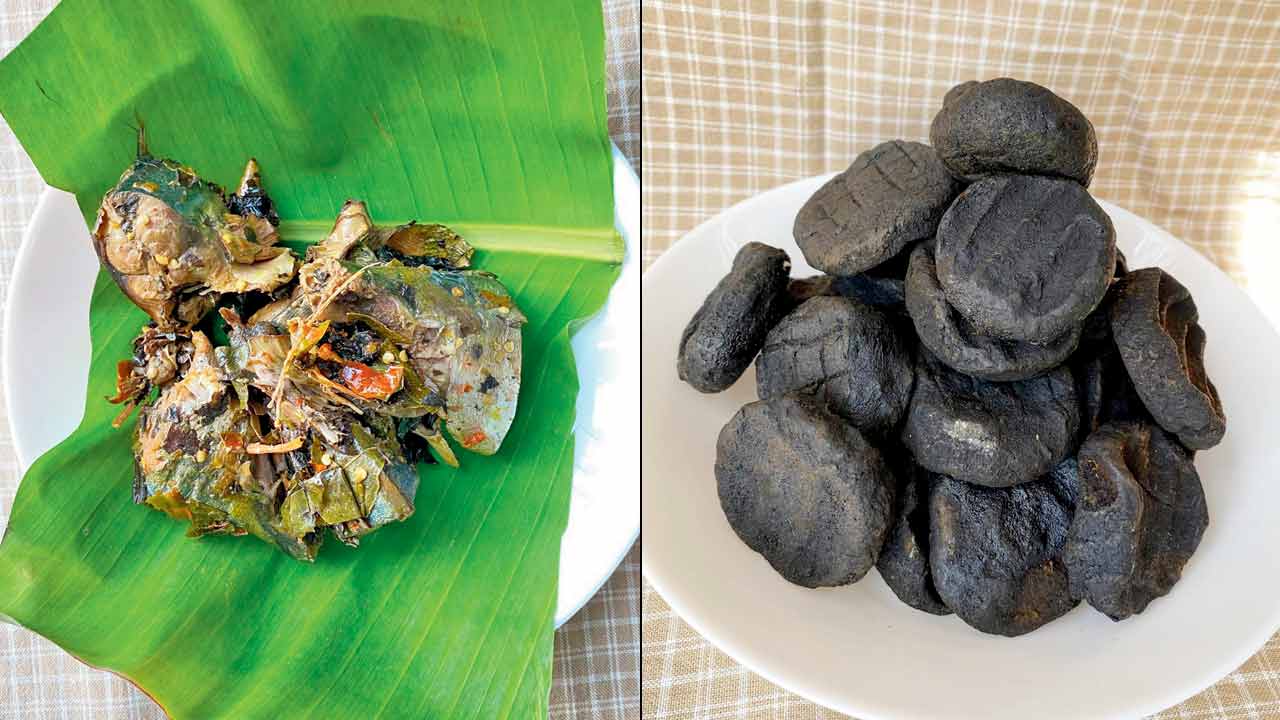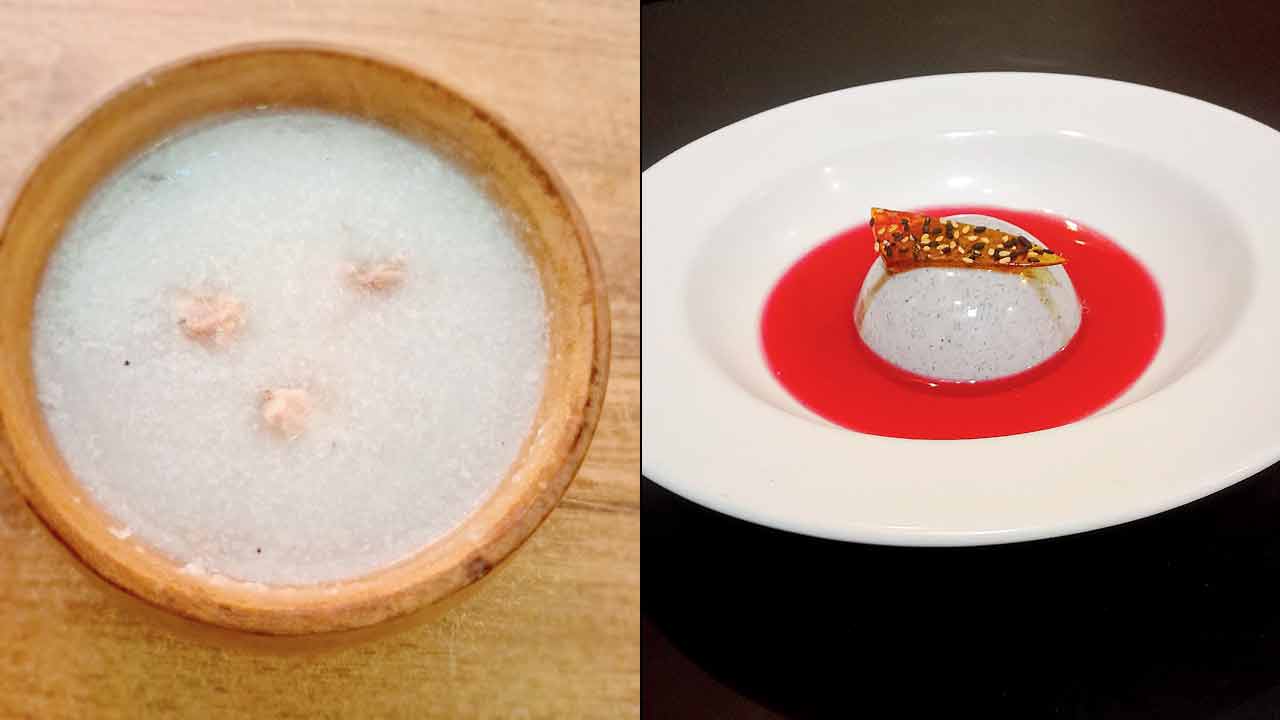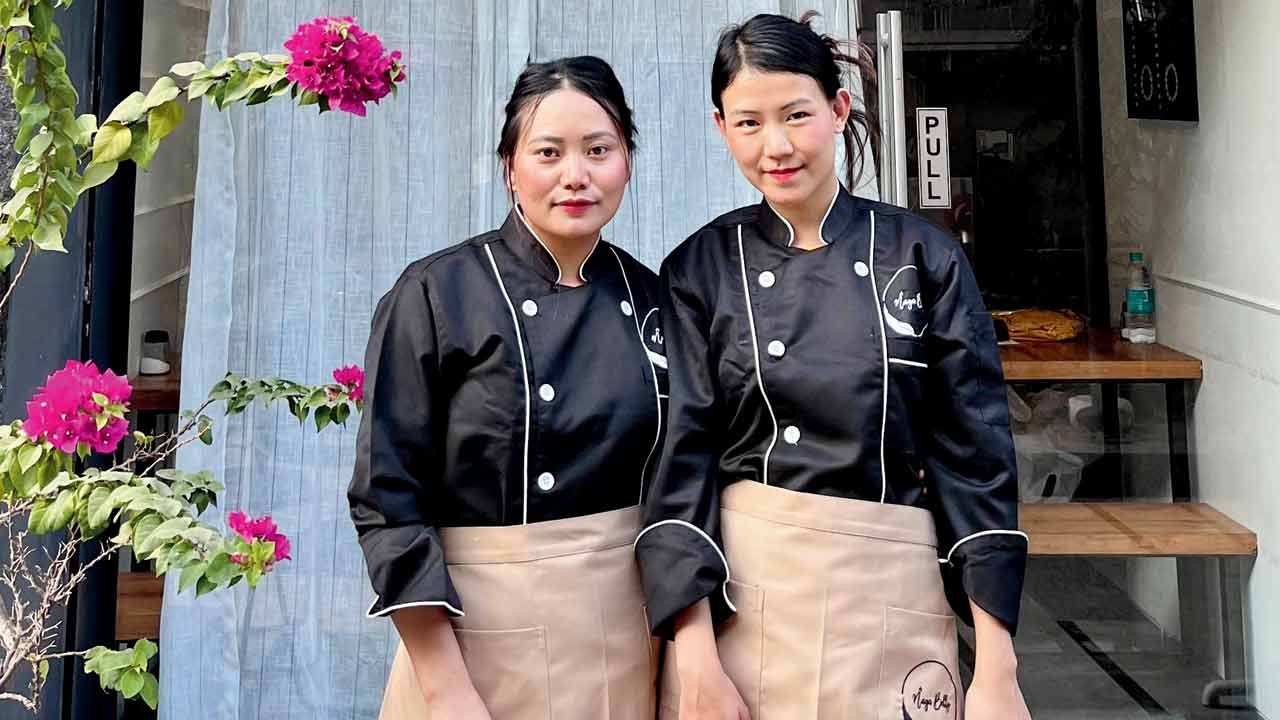This weekend the Ao tribe from the North Eastern state celebrate the spring festival of Moatsu. In Mumbai, a few chefs have come together to stir up flavours of this festival with a dive into their culinary traditions

(Clockwise from left) Dried chicken with bamboo shoot, anishi with smoked pork, rosep with wild vegetables (centre), chicken amruso, banana blossom chutney and red aromatic rice
For Aren Longkumer, co-owner of the Andheri-based Naga Belly, the last week has been a happy one. In 2020, Longkumer and her business partner Zhuvikali Assumi set out to introduce the city of Mumbai to the flavours from the North East, specifically Nagaland. This week, the duo has been busy prepping for a menu that is special, even by Naga culinary standards.
“Nagaland is rightly known as the ‘land of festivals,’ where tribal celebrations occur throughout the year, aligning with the changing seasons. This week marks the celebration of Moatsu, the spring festival,” Longkumer reveals. A community festival among the Ao tribe in the state, Moatsu is often celebrated from May 1 to May 3 post the sowing of seeds.

“Moatsu marks a significant juncture in the agricultural calendar, signifying the completion of planting and the commencement of the growing season,” she points out. Traditionally, the regions of Nagaland were heavily forested and mountainous. To cultivate agriculture, the tribe and villagers have to undergo toil to clear up the fields and clean up the tsubus (wells) in the days leading to the festival. The three-day celebration is a respite after the hard work. It marks the end of the toil and is accompanied by prayers for good growth of crops, shares Longkumer who also hails from the Ao tribe.
Assumi adds, “The festival is not just about agricultural rituals; it’s also a time for community bonding and cultural pride. Competitive games add an element of excitement, while cultural performances showcase the rich traditions of the Ao Naga tribe.”

Chicken amruso and Black sesame panna cotta
No good celebration can be complete without food. In the past, Longkumer reveals, most villages would rear Mithun (a species of wild ox) that would be served as a sacrifice at the festival along with pork, chicken and ox. “That’s not likely these days, so pork and chicken become key ingredients,” she says. It is this food that the duo is presenting for a special Moatsu menu at Naga Belly that concludes today. While chicken, pork and fish form a key part of the cuisine, vegetables are also mainstays of the festive delicacies.
“Our menu features specialties of the Ao tribe, including dishes like anishi [patties of fermented colocasia leaves, sun-dried or slow cooked over bamboo fire], amruso and rosep [a dish of boiled vegetables, dry fish and bamboo shoots], that hold significant cultural importance and are cherished for their flavours and traditional preparation methods,” shares Longkumer.

(From left) Aren Longkumer and Zhuvikali Assumi
These traditional methods of preparation also add to their flavour and set them apart from any dishes in the mainland, Assumi remarks. “Unlike some other cultures, we don’t have a tradition of frying food. Instead, all our food is prepared by steaming it in bamboo tubes, a method called ‘pongsen’. Even the meat is steamed and cooked in its own meat lard,” she explains.
Another key ingredient to the festival is fermented rice beer. “The rice beer is fermented for months in the run up to the festival, and shared around the village during the celebrations,” Longkumer shares.
But does it have a draw for Mumbaikars, we wonder? It does not matter, says the restaurateur. “It’s an opportunity for cultural exchange, fostering connections and friendships across communities. People can gain a deeper understanding of the traditions, values, and practices of the Naga community. It’s like sharing a delicious biscuit of cultural knowledge with everyone who attends.”
Till: Today Time Noon to 4 pm; 6.30 pm to 11 pm
At: Naga Belly, Four Bungalows, Andheri West.
Call: 9321987470
A touch of grandmother’s cooking

Moatsu carries memories of my grandmother’s servings of anishi. It’s a special dish for me as she would always welcome me home with all the yummy dishes, without forgetting the anishi — my favourite. Then, there is fish in bamboo shoots (right) or rosep, a special vegetable stew. We make it with everything from eggplant, string beans or karela, cooked together with meat or fish. Every time I make it for myself, or for my friends who are away from home, or people in the city, it gives me a chance to relive my childhood.
Chuba Jamir, founder, Naga Chukka cloud kitchen
Call: 9769818032
Log on to: @naga_chukka
 Subscribe today by clicking the link and stay updated with the latest news!" Click here!
Subscribe today by clicking the link and stay updated with the latest news!" Click here!










